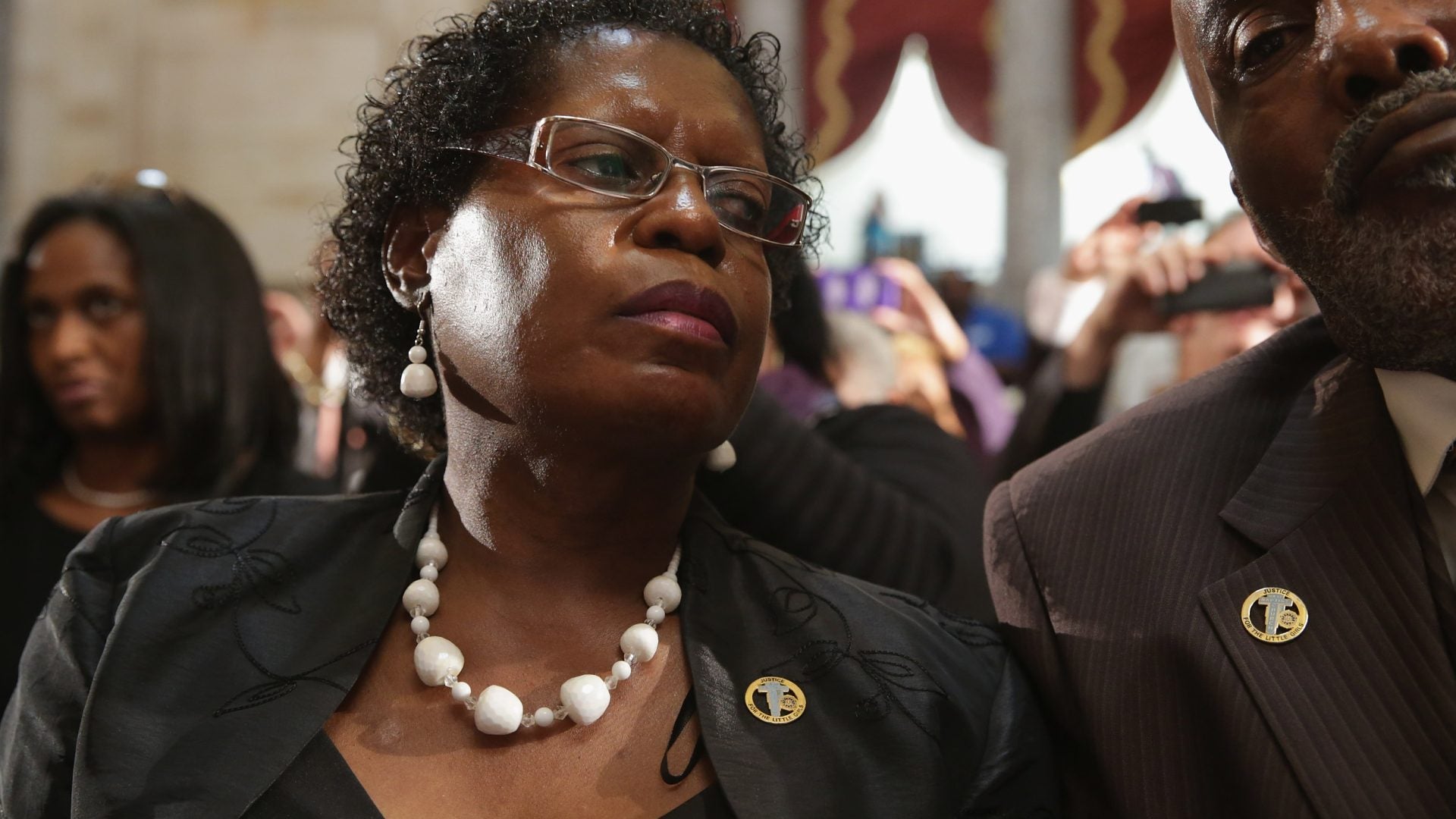
The 16th Street Baptist Church in Birmingham, Alabama, was bombed by the Klu Klux Klan 60 years ago today. The September 15, 1963 blast killed four little Black girls: Denise McNair, Cynthia Wesley, Addie Mae Collins and Carole Robertson.
It also left lasting scars on survivors like Sarah Collins Rudolph, Addie Mae Collins’ sister, who became known as “The 5th Little Girl.” Six decades later, Collins Rudolph continues to battle the physical and emotional wounds of that day. She lost one eye, wears a prosthetic, and still has glass in her other eye.
For years, she’s asked the state for help covering the major medical bills for the many surgeries she’s had to endure. Bills she still accumulates to care for her injuries from that day – preventing her from achieving her dream of becoming a nurse. However, she has not received any compensation for her injuries.
Collins Rudolph shared her traumatic experience on the recent “Voice of The Civil Rights” panel during the annual National Association of Black Journalists (NABJ) convention and career fair held in Birmingham this year.
“I would think that the Alabama state would compensate me for all I went through, but they haven’t given me anything,” she said.
Alabama Governor Kay Ivey apologized in 2020 for a racist and segregationist rhetoric that some leaders used at the time. Ivey’s office told Rudolph’s lawyer that restitution should be appealed to the state legislature. However, her efforts there failed to advance.
The bombing took place during the height of the civil rights movement, two weeks after the Rev. Martin Luther King Jr.’s famous “I Have a Dream” address in Washington and eight months after then-Gov. George Wallace’s infamous vow of “segregation now, segregation tomorrow, segregation forever”.
Rudolph, who was 12 at the time, said the girls were having a good time when they arrived at the church that morning and went to a basement bathroom to freshen up – only seconds before the bomb exploded.
“‘I yelled for my sister Addie, but she didn’t answer. She never answered.” said Rudolph.
“Those girls didn’t get a chance to live their life. They were killed just because they was Black,” she added.
The dynamite planted by KKK members was placed outside the church underneath the stairs. It killed the four girls, injured dozens of others, and left a crater in the church’s basement.
President John F. Kennedy condemned the racial violence in Birmingham a day after the 1963 bombing. “If these cruel and tragic events can only awaken that city and state – if they can only awaken this entire nation to a realization of the folly of racial injustice and hatred and violence — then it is not too late for all concerned to unite in steps toward peaceful progress before more lives are lost,” he said in a statement.
The events in Birmingham galvanized Congress to pass the Civil Rights Act. “Our history changed things,” says Collins Rudolph. “Those girls did not die in vain. And I thank God for that,” she told NPR.
Her childhood in Birmingham during the Civil Rights Era is detailed in her book The 5th Little Girl: Soul Survivor of the 16th Street Baptist Church Bombing (The Sarah Collins Rudolph Story). The biography goes in-depth into the aftermath of the bombing, Rudolph’s relationship with her family and its impact on them.
An FBI investigation determined that four members of a local KKK group, the “Cahaba River Bridge Boys,” carried out the bombing. However, the first prosecution did not occur until 1977. Then, there were two more in the early 2000s. The fourth killer died without ever being brought to justice.







Today, the 16th Street Baptist Church continues to welcome tens of thousands of visitors yearly. Pastor Arthur Price Jr., who now leads the church, told CBS News that the tragedy became an agent of change.
“We are being agents of change, which we believe the four little girls were because of what happened to them. It helped change the world,” he said.






